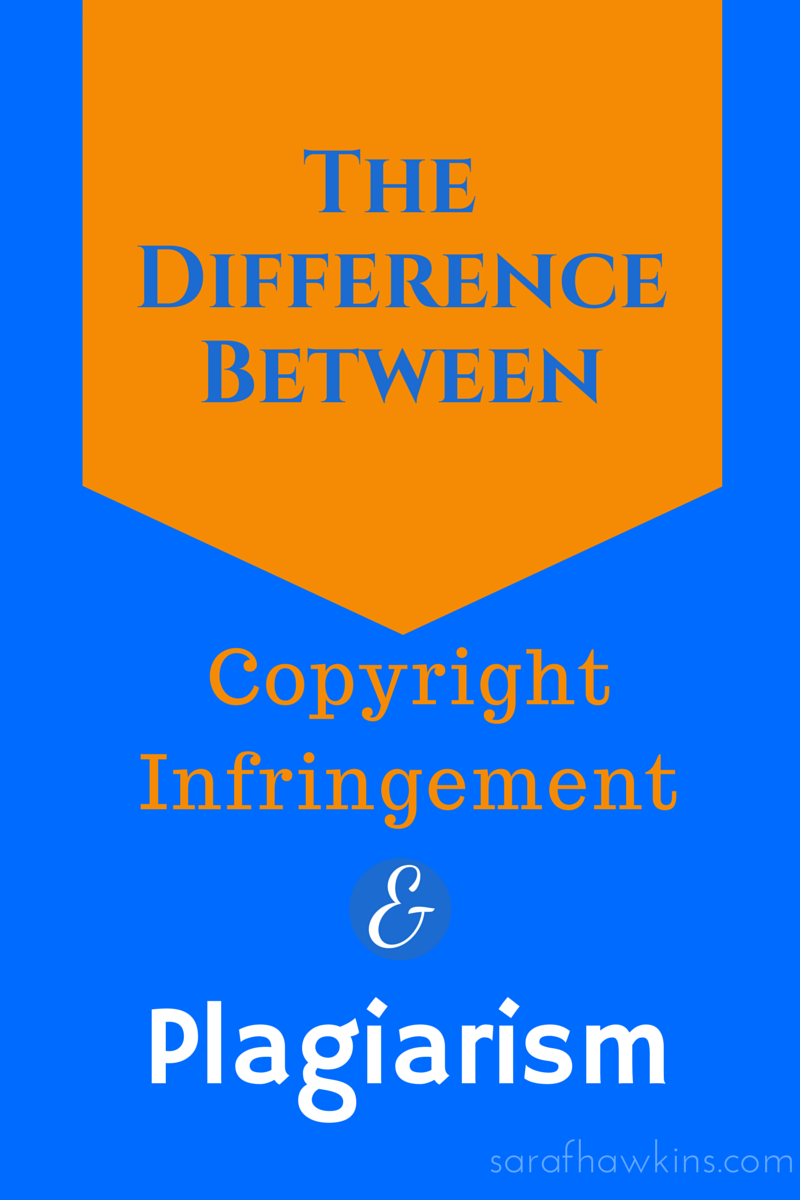
I think it’s in high school when most of us had the concept of plagiarism shoved down our throat. It was all part of the lessons about citations and the MLA format or the Chicago Style Manual or whatever it was your teacher used to put the fear of getting an F in you. And, of course, this was likely before this whole internet thing controlled our communication. Still, too often, there is confusion about infringement of copyright and plagiarism.
What is Plagiarism?
Plagiarism is, simply, taking someone else’s work and passing it off as your own. Happens all the time. Happens to school kids. Happens in the work place. Happens on the internet. Every day. Everywhere. Sometimes people lose their job because they’ve plagiarized another person’s work. Students have had their college admissions revoked due to plagiarism charges.
Plagiarism is not illegal in the United States. Despite the sometimes very harsh consequences, plagiarism is a moral issue not a legal one. Given the spectrum of morality practiced by people around the globe, plagiarism can range from a small nuisance to a serious offense with significant consequences.
While many companies don’t have a policy regarding plagiarism, certain industries follow very strict ethical codes. As consumers we also expect a certain level of professionalism from those in fields where information and words are the equivalent of gold. And while passing off someone else’s work may not seem like a big deal compared to things like insider trading, corporate espionage, or trade secret theft, most educated people do consider plagiarism to be important.
What is copyright infringement?
Copyright infringement can only happen if the underlying work is copyrighted. While copyright is automatic, it doesn’t apply to every single thing we create. So, yes, there are a host of super cool things that you can not copyright. Things like lists, useful items, choreographic works (unless they have been recorded), fashion, ideas, and, for the most part, works created by the US Government.
Copyright infringement is a legal framework for pursuing damages against someone who wrongfully violates the exclusive rights you have with your copyright. That’s kind of the lawyer-ish way to say, if someone uses your copyrighted work without permission or under a covered exception such as Fair Use, you likely have a case and can sue them (or if it’s online also file a DMCA Takedown Notice and get their posting taken down).
Like copyright, copyright infringement is automatic. If your copyrighted work is used without your permission in a way that violates your exclusive rights, the person or organization using it is engaging in copyright infringement. The key is that (1) you must have a copyrighted work, (2) it is used without your permission or under a valid exception, and (3) in a manner for which you have exclusive rights.
Let’s break this down:
1. The work must be subject to copyright. Remember, there are a number of things that can not be copyrighted.
2. You must be the copyright holder. Your copyrighted work does not have to be registered, but that helps if you decide to seek damages. The copyright can’t be expired (which is not usually important with regard to current works but keep the year 1978 in mind because that’s a key date of delineation in Copyright).
3. Your copyrighted work must be used without your permission or authorization and not covered by an exception. This means you did not provide permission or if you had but have since legally withdrawn permission, there may be an infringement. Keep in mind that if you had put your work out under a Creative Commons license those are non-revokable. (Did you know that about Creative Commons licenses?)
4. The allegedly infringing use is one that is yours exclusively under the US Copyright Act. Other people can tell you they’ve seen your work online, but they can’t use the law to enforce your rights. The exclusive rights are rather broad but you’d want to ensure the allegedly infringing use falls into one of those categories.
If all four of these things are present, you likely have a copyright infringement and have a host of legal remedies available.
What is the difference between Copyright Infringement and Plagiarism?
The most significant difference is that you can sue or employ the remedies under the Digital Millennium Copyright Act (DMCA) for copyright infringement but you can’t for plagiarism. Plagiarism may overlap copyright infringement, but that’s not always the case.
Other differences include:
Copyright infringement doesn’t consider whether you were given credit. Copyright infringement can still occur even if the source, author, or copyright-holder is cited. Plagiarism only occurs if someone is trying to pass off your work as their own.
Plagiarism is a violation of moral, ethical, or organization norms not laws.
Plagiarism can occur with things not subject to copyright or when copyright infringement is excused as Fair Use. Ideas can be plagiarized, as can useful articles, neither of which are subject to copyright.
Copyright infringement only happens with regard to the copyright holder, which may not be the author or actual creator. Plagiarism is an offense against the author or creator, regardless of who may have legal rights to their work.
Plagiarism can occur even if there is permission from the copyright-holder to use the work. Permission to use the work doesn’t mean you get to take credit and pass it off as your own. Even if the copyright-holder didn’t specify anything about giving credit, you have to provide some type of attribution to avoid a plagiarism charge.
For copyright infringement that takes place online, you may be able to file a DMCA Takedown Notice. In cases of plagiarism only, the remedies available are much more limited.
Bottom Line
Both copyright infringement and plagiarism are bad. Both often play out in the court of public opinion, which likely has a greater cost than any legal judgement. Some may argue that the consequences of being found to have plagiarized a work are more harsh than damages a court doles out. Interestingly, a finding of plagiarism may stay with someone much longer than being held accountable for copyright infringement.
As a society, the value we have for makers and creators is not always consistent with actions. With the advent of social media, it’s easier than ever to be held accountable for claiming to have created something when, in fact, you didn’t. Right or wrong, we really need to move away from the premise that it’s easier to ask for forgiveness and, instead, support the value of creators and their work and ask permission and give credit.

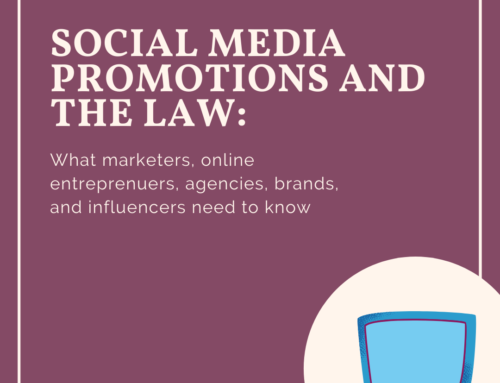
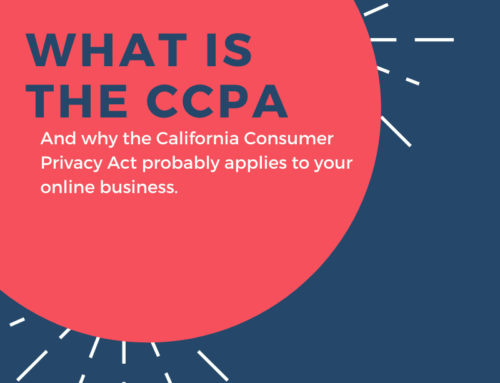
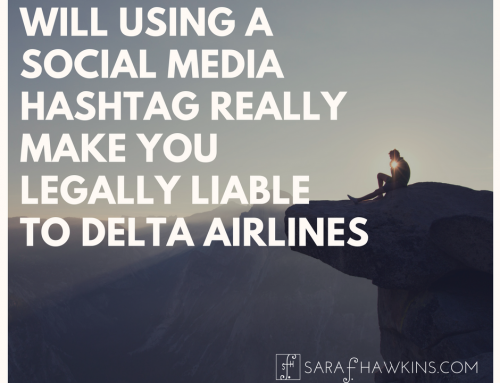
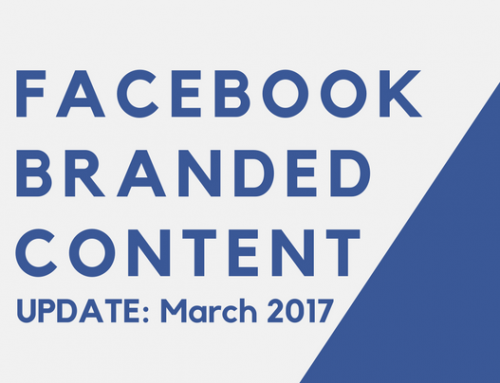
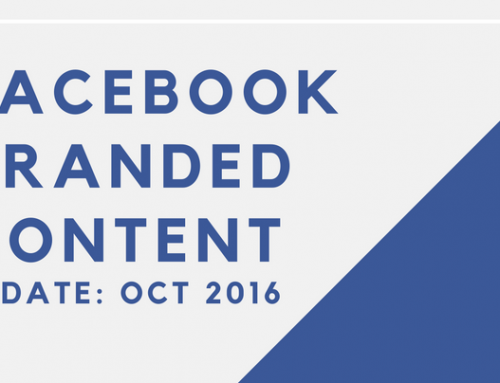
I have found lately that other people with blogs are copying my whole post for their site and sharing my images on social media to drive traffic to their site. I know that these people often think they are just sharing content and as long as thry site the author they are fine but in fact I make a living from my blog and I spend hours writing, editing and creating cover art. When a person takes all that and pastes it to their site, even if they link back to mine, why would anyone leave their site to read an article that they can read in full on their site. If you make income from your site and are driving traffic with my images and never asking permission it seems a bit like theft to me. I don’t mind someone linking to my site or an article but don’t copy and paste the whole thing on your blog.
I’m sorry to hear that, Kim. 🙁 I haven’t had that happen to me, yet (that I know of). You mentioned social media shares. Can you elaborate on that for me? I write a lifestyle blog, and have begun sharing articles that interest me from my personal feed, but they link straight to the original writer’s website, so I haven’t thought about it possibly not being okay. If it doesn’t link to my blog, and I’m not claiming ownership, is that okay, do you think? I do it partially to draw interest from my readers – engagement on Facebook is hard, as I’m sure you know – but I also do it to hopefully build community among writers, by promoting their work as it interests me, and as I think it will interest my readers. I definitely don’t want to step on toes, though!
So, I’m confused now. Is it okay to include snippets, etc, to other people’s work as long as we credit and link, or…? Example: I’m posting a round-up this week of pumpkin decorating ideas, only one of which is my own work. I’m not copying any info at all, just sharing the name, a brief thought or description, and linking each idea back to the original post/creator. Is that okay?
Alena, providing your own words and a link to the original content is not copyright infringement. With post round-ups you may see images that link back to Pinterest. Pinterest’s embed functionality is a license granted by the account-holder to other Pinterest users and thus does not fall within the scope copyright, necessarily. It’s the “right click” of photos or “cut/paste” of text that creates the problem within the online community. Many bloggers will use the title of the original post and then hyperlink it back to the blog that wrote it. That does not fall within the realm of copyright infringement. Hope this helps!
Kim, I’m sorry to hear about your experience. I’ve found that within the frugal blog community there are so many sites that scrape content. They’re not legit sites anyway but they’re doing it for the clicks and the ad revenue. For legit bloggers who take the work of other bloggers, if they don’t know the laws/rules they need to learn. And for established bloggers who take other people’s work and don’t care, thankfully there is the DMCA.
Thank you, Sara, for a great article.
One of the things I need to do is take action about people who have taken images from my website and put them onto products at CafePress.com. They even took the made-up word that I created (by merging two words not normally seen together into one combined word) and used it as their search term to drive business to their CafePress stores.
I will use your page as a reference for future actions.
Thanks again,
John
John, like most online stores that allow you to make your own products, CafePress may have a DMCA takedown notice form. If not, check the Intellectual Property policy since these type of sites need to have a way to contact their Copyright Agent per the DMCA. You may also wish to look up Gardner v. CafePress for some insight to a recent case.
I like the advise you give Sara. I also see many people who follow you, who have copyright infringement cases in federal court against them. I also see them writing or sharing articles about copyright infringement. Yet, even after having so far four takedown notices and disabled from FB, Pocket, Pinterest, and Stumbleupon~these women refuse to take a copyright photo down. One said my friend shared it and I can use it~yeah no she didn’t take the photo. This very woman wrote a article on it. Please make them understand what happens when the Feds remove their blogs & they get sued in federal court for “willful” infringement. Trust me they know they are stealing and just do not care. Federal copyright lawsuits where the respondent “willfully” knows is going to get nailed for up to $150,000 per infringement.
Steve, no advice-giving here. Just providing information to help those who may not be sure of what’s-what as laws and the internet intersect. Until we have public cases where bloggers have been held accountable, we’ll continue to see people who will disregard the law. Just like speeding, we rarely stop breaking the law until we (or people we know) get caught.
Thank you for a great article!
[…] Sarah F. Hawkins, lawyer, posts about the difference between copyright infringement and plagiarism. […]
This is really helpful. As a blogger, I can use all the legal help I can get. Thanks for making me knowledgeable.
Glad it was helpful.
Thank’s Sara, this is helpful as I start my own blog. I hope to read more!
Thank you for your kind comment, Nicole. Good luck on your new blog.
Thank you for sharing your thoughts and guidance with us in these posts. I just found you via Pink Heels Pink Truck. Following now!
Thanks for visiting and for your kind words.
Hi Sarah thank you for your post it has been quite helpful to me. I received today a letter from a Company telling me I have infringed copyright on a small photo added to one of my Blogs 6 months ago. I no doubt copied it from Google Images. Now they want $1200 paid within 14 days. I have no idea where to go with this. (If they wanted me scared it is working as I now feel I need to remove every photo I didn’t personally take.) can this be legal to charge without warning? Have you any suggestions? Joslyn
Hello Sara, thanks for your valuable information. I am thinking about making an e-book whose subject is related to the field of my product. My resources are texts and pictures of different bloggers on Internet. This e-book will be offered to my customers for Free. This book has an educative purpose. I am considering including a Webliography with the list of websites. Can this idea being considered as fair use? Thanks in advance for your opinion and comments.
Hector, you would need to speak with proper legal counsel on this matter.
Sara,
Thanks, I like this post. I have some questions:
1) I notice that at the bottom of the page you assert copyright, with all rights reserved. I would like to use some content for teaching, and may be permitted to do so under fair use, but will ask: may I use this information for teaching?
2) I appreciate your suggestion to “support the value of creators and their work and ask permission and give credit.” The internet revolution has changed information sharing, making it both easier to identify sources and to provide attribution. But there are few truly new things, so attribution can become consuming. For example, nearly all of all of information in this post is surely available from other earlier sources, yet there is no attribution. A blog is relatively informal medium compared to say academic literature. Does an author’s assertion of copyright implies greater formality and need for originality? Does an author’s assertion of copyright require better attribution of non-original content than if copyright were not claimed? If some portion of the information is from the public domain, how should it be identified and differentiated from the non-public-domain information?
Thanks,
Scott
Scott,
Thank you for your comment. Yes, I do assert copyright to all my work reserving all rights. If someone is to use my work and there is a Fair Use claim I would have no grounds for denying the use. With that said, not all teaching use is Fair Use so it would depend on specifics as to whether the use was, indeed, covered by Fair Use. If you are concerned, please feel free to email me directly using my contact form and explain how you would use my work. To avoid plagiarism assertions attribution must be provided.
With regard to your question 2, copyright attribution is different than providing a citation. Attribution credits a copyright holder whereas a Citation is a scholarly practice. I have not used copyrighted material in this article so I do not need to provide attribution. For those articles in which I do need to provide attribution for use of copyrighted work, I most certainly do provide attribution. I do not offer citations because my article does not need reference tracking to ideological sources and while my content is a bit more formal, if I were to use a publication or materials that would require citation I would provide them.
To obtain a copyright on a work there must be a certain level of originality, as that is required by the US Copyright Act. Regardless of whether the information is or is not in the Public Domain, attribution would be required to avoid a charge of plagiarism. Citation rules are not based on whether a work is or is not in the Public Domain. The scholarly source of a work is cited regardless of the copyright. If one were to quote from Hamlet, A Tale of Two Cities, or Don Quxiote, all works in the public domain, the respective author would need to be given attribution to avoid plagiarism. In addition, whichever citation construct used (ex. MLA, APA) the work itself would need to be acknowledged despite the work being in the public domain. The same would be equally applicable to Harry Potter, Star Wars, and Jurassic Park, all works currently under copyright.
Yes, attribution can be consuming. However, if you are legally using the work of another providing attribution will keep you from a claim of plagiarism. If the work is subject to copyright, attribution alone will not be sufficient to avoid a claim of copyright infringement.
Hope this help,
Sara
I like this article. Easy to understand .Simplicity at best Very far away from legalese language.
thank you for this wonderfull article………………………………..and again thank you
Thank you, Sara, for this post
I am not a native English speaker however used to study in Portland, OR, 20 years ago. After reading your post about plagiarism I still have doubts whether I understood it correctly.
My case is the following – I am writing the text of so-called “user manual” for one web-based software. It is connected with financial reporting. And in some places – very rarely – I want to use frazes and sentences from other articles from some other sites.
In general the whole text is done by me except these insertions.
Will I violate any copyright rules after publishing such “user manual” on my website?
Thank you
Hello Kos,
I can’t say if it will or will not violate copyright laws, that’s a determination that can only be made upon close examination. When using other works, proper citation will likely keep it out of the plagiarism realm.
What’s up,I read your blogs named “The Difference Between Copyright and Plagiarism” like every week.Your writing style is witty, keep it up! And you can look our website about love spells.
[…] Infringement vs. Plagiarism – What You Need To Know. [online] Sara Hawkins. Available at: https://sarafhawkins.com/difference-copyright-and-plagiarism/ [Accessed 23 Aug. […]
[…] [2] The difference Between Copyright Infringement & Plagiarism. Sarah F Hawkins, Attorney at Law. Retrieved September 13, 2017 from https://sarafhawkins.com/difference-copyright-and-plagiarism/ […]
please help me ! can any one answer this question
How many years it lasts the copyright infringement and plagiarism?
please help me ! can any one answer this question
How many years it lasts the copyright infringement and plagiarism?
Plagiarism is not a legal matter so raising the issue of plagiarism can happen at any time.
Copyright infringement suits must be brought within 3 years of discovery (or when one should have made discovery) of the infringement. This may seem like a simple time period, but there are a number of legal strategies in determining the date from when that 3 years begins to count down.
[…] Hawkins, SF 2018, “The Difference Between Copyright Infringement and Plagiarism”, SARAFHAWKINS – ATTORNEY AT LAW, viewed 08/05/2018, https://sarafhawkins.com/difference-copyright-and-plagiarism/ […]
I’m extremely pleased to find this page. I want to to thank you for
your time due to this fantastic read!! I definitely loved every bit of it
and i also have you bookmarked to look at new things in your blog.